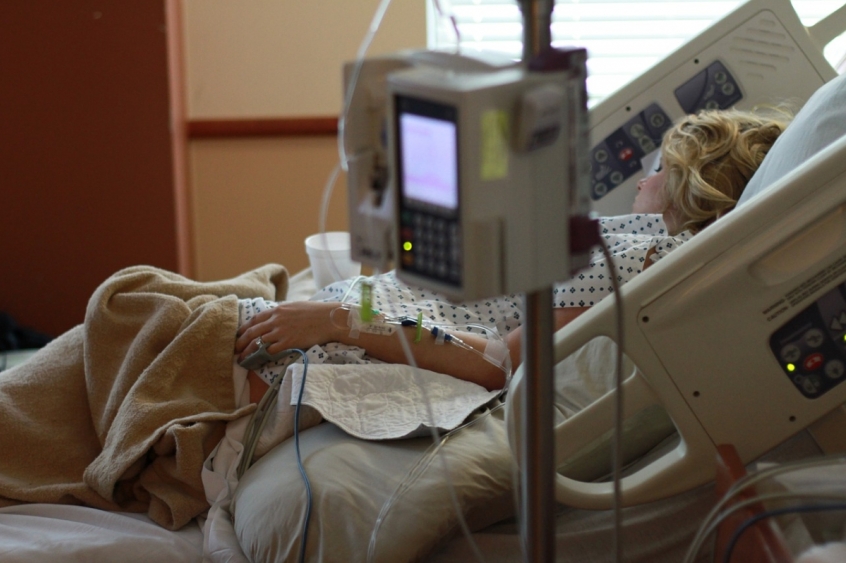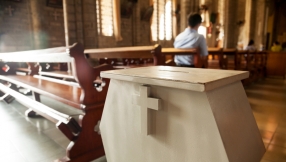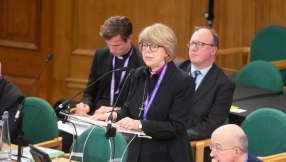When is a person not a person? It sounds like the set-up to a bad joke, but it's far more serious than that. People with brain injuries that leave them in a persistent vegetative state (PVS) breathe, sleep and excrete. They really do anything else: they don't communicate, they show no responses to other people or any awareness of their surroundings. Brain scans show nothing happening.
So should they be kept alive, at considerable expense, or should their families be able to decide to let them go?
The question has surfaced again thanks to the story of Jodie Simpson. She died a few weeks ago having spent four years in a PVS after an overdose. Her mother Jean first asked doctors to help her to die in April 2013 and it has taken this long to make it happen. She believes it should be easier and quicker, and that her daughter wouldn't have wanted to remain alive in her condition.
Others disagree: life is life, they say – and there are too many cases of people written off by medical science who've gone on at least to some degree of recovery. Who are we to decide whether someone should live or die?

In the UK, the way doctors deal with PVS was established by the Tony Bland case. A Hillsborough victim, he spent years in a PVS after he was crushed in the crowd. He died in 1993 after a long court battle after artificial feeding and hydration was withdrawn. It was his case that established that the court had to be involved in every decision to allow someone to die – it isn't for the family or for doctors alone.
In the US, it's symbolised by the case of Terri Schiavo, who was the focus of intense campaigning during her PVS from 1990 until she died in 2005, with pro-life and right-to-die activists fighting her case through the courts and in the arena of public opinion. There was a bitter split between her husband, who wanted her to be allowed to die, and her parents, who did not; the legal fight went all the way up to the US President, George W Bush, who returned to Washington DC specifically to sign legislation designed to keep her alive.
Not just in the case of PVS but in other areas, Christians are deeply concerned about a perceived drift to devaluing human life. Belgium has already legalised the euthanasia of children, the first of whom died only a few days ago. In the UK, the latest Assisted Dying bill was rejected last year; it will be back.
So how should Christians think about these issues, and are there principles that can guide us? Here are things to bear in mind as we think things through.
1. The Bible is of limited use
There are no proof-texts to help us, because many of these situations were simply not envisaged when the Bible was written. They are functions of our technical ability, which has allowed us to keep alive people who would otherwise have died. The Bible has nothing to say about people in a persistent vegetative state, because there weren't any. We cannot be fundamentalists about this.
2. People are of infinite value
No one is worth less than another person because they are disabled mentally or physically, or because they are poorer or contribute less to society. One of the gifts Christianity has given to the world is the knowledge that someone's worth is innate; it's given by God, not acquired by some and not others. We should resist anything that tends to write off some people as worthless, no matter what their physical or mental condition – and that's why we should resist any move to take the decision about removing feeding from the courts. It sends a poweful signal that human life is too important to let go on the say-so of any individual.
3. We are part of society
We aren't just free individuals, with no responsibility for anyone else. One of the arguments of the right-to-die lobby is that we should have the freedom to choose death if we're in great pain or distress. In principle, this sounds plausible. However, it's very difficult to imagine a system that allows people this right and at the same time protects vulnerable people from the pressure to choose death when they would rather live – and that is why UK Christians should continue to resist calls for right-to-die legislation.
4. We're vulnerable to self-deception
It's fatally easy for documentaries to portray people who are in pain and distress and want to end their lives, and to get us on their side: it seems cruel not to give in to them. But one of the things we have to bear in mind is the effect their suffering has not just on themselves, but on us. It distresses us acutely; we want it brought to an end, and that can skew our arguments in favour of terminating life.
5. We should beware of faithlessness
Christians believe death is not the end. People facing the end of their lives, or who are in a vegetative state, still have a future. Saying that preserving their lives at all costs is the only Christian thing to do is arguably to place too high a value on continued existence, as though existence is all that matters. That's a view that might make sense to an atheist, but not to a Christian: we believe all life matters to God, not just now but in eternity.
In the end, the situations created by modern medical science are so varied and complex that Christians have to approach them cautiously, humbly and in the knowledge that there are no easy answers. We have to balance our knowledge of the infinite preciousness of human beings with our knowledge that all of us have to die. If we're in a position where we have to make a decision for a loved one, we have to ask for purity of heart and mind as we do it. We have to be able to trust God with the outcome, even when it's desperately hard.
Follow Mark Woods on Twitter: @RevMarkWoods













